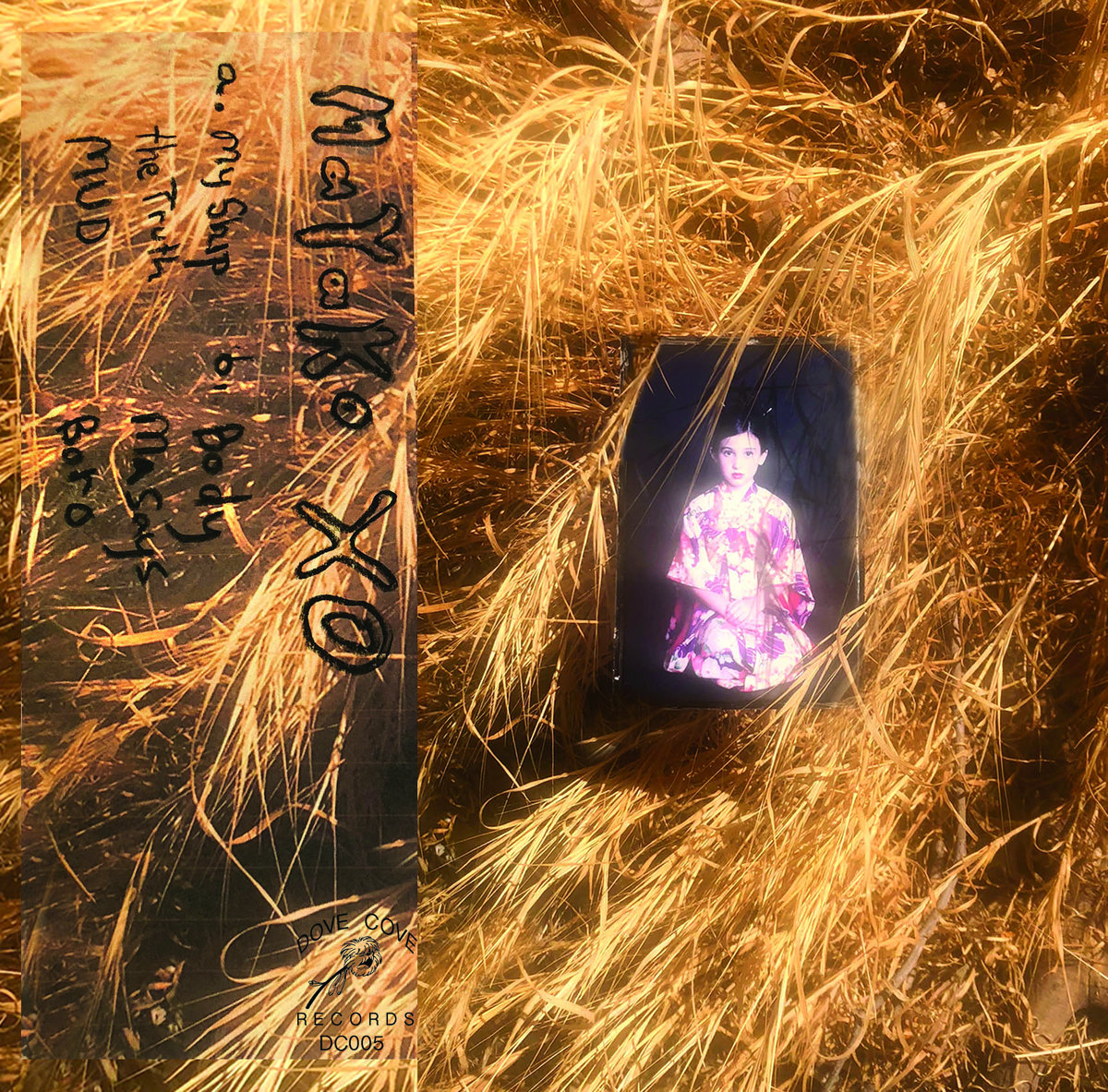Phillipe Roberts
mayako xo makes a terrifying first impression. Visit the Bandcamp page for her self-titled record and the “single” you’re treated to, “Ma Says,” is less a warm introduction than an attempt to drag you into a personal vision of hell. Its grueling eight-minute length and monotonous, looped central riff forces your ear to lean in to the subtle inflections: a delightfully soured vocal note, alternating dissonant scrapes up and down the fretboard. And all of this strung together by the subtle horror of a Shel Silverstein poem.
“And I ain’t too smart,” she intones in a dark, ritualistic voice, “But there’s one thing for certain.” Your whole body stands at attention. A lone bass note wobbles and dissipates, carrying all the air in the room out with it. “Either Ma is wrong / Or else God is.” The original work contains none of this horror, but it’s mayako xo’s ability to read between the lines, to seize those empty spaces and twist them into something deadly, that makes the album such an enchanting listen.
For a record composed mostly of droning passages and spoken-word self-dialogue, the hypnotic nature of the music allows mayako xo to slip right past you with unexpected briskness. Rather than build up to ear-splitting crescendos or massive beat drops, the artist siphons off the energy; these songs collapse rather than explode, shriveling up in a heat-death coma of eerie silence. Opening track “The Ship” seems to take particular pleasure in catharsis denial. The instrumental is the busiest on the album, a romp through clattering tom-toms and tambourines and a menacing, see-sawing flute sample. Her voice rattles off pitch-shifted entreaties to be made whole: “I hear you want me / Can’t you call me / Deliver me to me?” And then the bottom end falls out, leaving her voice twisting and distorted, curling off like smoke trails into the darkness.
mayako xo likes her darknesses vast, with plenty of space and reverb to the backing tracks. They sound distant in contrast to her voice, giving the sense that she’s singing along to music playing through the walls of a vast hall or church. Her breathy melodies are gritty and drawn out, wavering in and out and frequently complemented by a harmonizer that adds a second voice in a different pitch. On “Mud,” this secondary presence mocks her, chanting “I’m not anyone / I’m not anyone,” like a grotesque, nagging inner voice amplifying her most self-defeating impulses. On “The Truth,” the effect is angelic, soaring weightlessly over a heavy, doom-inspired guitar drearily headbanging in tow. But throughout the record, she keeps this juxtaposition of space constant; her voice drives the music entirely, never enveloped completely by the encroaching horror breathing down her neck.
mayako xo is a brisk journey through warped mental states, an excavation of personal truth through hypnotic ritual. Sparse yet alluring in its seductive simplicity, it’s a labyrinth of emotion whose details have to be searched with bare hands, hugging the walls to keep track of where you’ve been. There may not be any climactic hallelujah moment on the other side, but mayako xo captures the beauty of wandering the internal maze.





